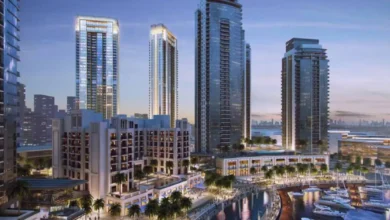Understanding Real Estate Appreciation and Depreciation

Understanding the nuances of real estate appreciation and depreciation is essential for any investor seeking to navigate the complexities of the market. Appreciation, characterized by the rise in property value, contrasts sharply with depreciation, which reflects a decline often influenced by various economic factors. Key elements such as local market conditions, supply and demand, and neighborhood developments play pivotal roles in shaping these trends. By grasping these dynamics, investors can make informed decisions that ultimately impact their financial outcomes; however, the interplay of these factors raises critical questions about strategic investment timing and value enhancement.
Definition of Appreciation and Depreciation
In the realm of real estate, understanding the concepts of appreciation and depreciation is crucial for informed investment decision-making.
Appreciation refers to the increase in property value over time, often driven by favorable market trends and economic indicators.
Conversely, depreciation signifies a decline in property value, generally influenced by adverse market conditions and economic factors, impacting overall investment viability and financial freedom.
See also: centergagnant
Factors Influencing Property Values
Numerous factors contribute to fluctuations in property values, each playing a pivotal role in shaping the real estate landscape.
Key influences include market trends, which dictate buyer demand and property desirability, and economic indicators, such as employment rates and inflation, that impact purchasing power.
Understanding these elements is essential for stakeholders seeking to navigate the complexities of property valuation effectively.
Impacts on Real Estate Investments
Real estate investments are significantly affected by appreciation and depreciation trends, which directly influence property values and investor returns.
Understanding market cycles is crucial for optimal investment timing, as properties may yield varying returns based on economic conditions.
Investors must analyze these trends to make informed decisions, ensuring that their strategies align with anticipated market shifts and capitalize on potential appreciation opportunities.
Strategies to Enhance Value
Enhancing property value requires a strategic approach that encompasses various factors, including renovations, market positioning, and effective management practices.
Successful renovation projects should align with current market trends to attract potential buyers or tenants.
Additionally, understanding local demand dynamics and investing in amenities can significantly enhance perceived value, leading to increased appreciation and optimizing returns on investment over time.
Conclusion
In conclusion, navigating the complexities of real estate appreciation and depreciation is essential for optimizing investment outcomes. By understanding the multifaceted factors influencing property values, investors can make data-driven decisions that align with market dynamics. The interplay of economic conditions and neighborhood developments often dictates the trajectory of property values, highlighting the importance of strategic planning. Ultimately, informed investment strategies not only safeguard against potential losses but also harness opportunities for significant long-term gains.



